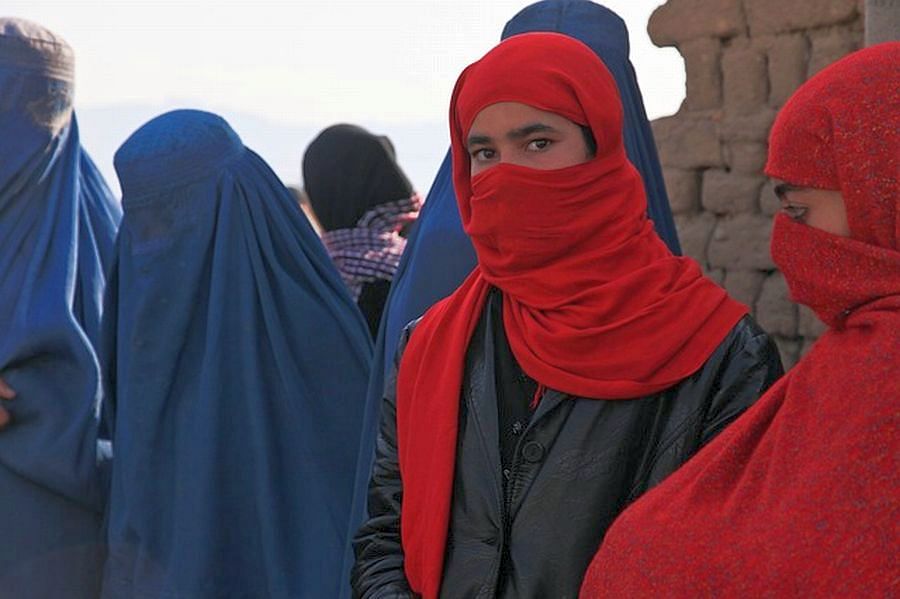
I call. You’re stone.
One day you’ll look and find I’m gone.
This is a landay, a part of the revered culture of Afghanistan and mostly the only expression of opinions and feelings by women who risk death for a voice in the world.
Landay is a form of folk poetry from Afghanistan consisting of a single couplet written anonymously and often recited or sung by Pashtun women, in a culture where they are not to be seen or heard.
It is a testament to the spirit of the women to raise their voice and undermine the social code through these folk poems. Despite the musicality of the form, landays are said to ‘cut like a knife’ and its revolutionary aspects exist across many levels. In a country where women are forbidden from reading or writing poetry, the very act of saying a landay constitutes an act of resistance and it is supposed to communicate, in a simplistic language, the true essence of Afghan life.
It is a very unique form of poetry that doesn’t exist anywhere but among the Pashtun population of Pakistan and Afghanistan. Landay, in Pashto, literally means ‘short, poisonous snake’ and these short bursts of poetry reflect the definition are meant to have a sharp, emotional ‘bite’ on humans’ feelings.
Consisting of twenty-two syllables: nine in the first line and thirteen in the second, the poems end with the sound “ma” or “na”, sometimes with a rhyme scheme, but more often not. Lilt from word to word has a lullaby effect which balances the sharpness of their content, recognised not only for its beauty, earthiness, and wit, but more so for its piercing ability to articulate a common truth.
Besides offering a window into the Afghani culture, landays also relate the history and culture of Afghanistan occupying a unique place in literature. Revolving around themes of meena (love), jang (war), watan (homeland), biltoon (separation) and gham (despair or grief), there is no certainty regarding the origin of landays. The most popular theory is that these biting little poems started off as a form of communication within the Indo-Aryan caravans that arrived in the region years ago and are known to be born long before Islam, and closest in relation to Hindu slokas.
Within the five main tropes, the couplets express a collective fury, a lament, a love of home, a call to arms, a longing for the end of separation, an earthy joke, all of which contradict the superficial notion of Pashtun women as submissive or nothing but a mute ghost beneath a burqa.
I Am the Beggar of the World: Landays from Contemporary Afghanistan, a photographic and poetry collection by journalist Eliza Grisworld and war photographer Seamus Murphy, was to explore the inner world of a culture that is hard to access.
Here are a few more landays from the collection:
Your eyes aren’t eyes. They’re bees.
I can find no cure for their sting.
You won’t allow me to go to school.
I won’t become a doctor.
Remember this:
One day you will be sick.
My darling you are just like America,
you are guilty, I apologise.
My love gave his life for our homeland.
I’ll sew his shroud with one strand of my hair.
Her memory will be a flower tucked into literature’s turban.
In her loneliness, every sister cries for her.